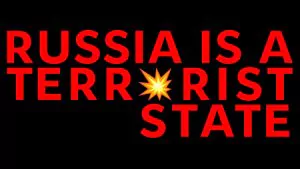Subscribe to our Telegram channel

russians are trying to withdraw sanctioned cryptocurrencies through the darknet
The media of the terrorist state report that the number of offers to «free» the digital assets of Russian depositors has increased in the darknet. These are funds blocked on crypto exchanges that are forced to comply with the eighth package of EU sanctions against Russia as a result of its full-scale military invasion of Ukraine. According to analysts, a total of 10,000 to 20,000 Russians have their accounts blocked on cryptocurrency exchanges, and the amount of funds under sanctions exceeds ₽2−3 billion in cryptocurrency.
Theoretically, assets can be unblocked, in particular, by withdrawing funds to an unblocked account or re-registering exchange profiles with the verification conditions reset. The fact is that on some platforms, users with blocked accounts can transfer assets to another crypto exchange user who is not subject to restrictions. However, such services in the darknet can cost 35−85% of the total value of assets, and such offers often turn out to be fraudulent.
Financiers note that to unblock accounts, in most cases, citizens of the occupying country need to provide proof of foreign residence. «This can be done by communicating with exchange support services, and then by adapting accounts. Users are already registering accounts using VPNs and buying ready-made profiles on the darknet,» the experts emphasize.
In early October, the European Union tightened sanctions against the killer country regarding cryptocurrency transactions in the eurozone. Companies that have a European license were banned from opening accounts and crypto wallets for citizens of the occupying state. As a result, access for Russians has been restricted to BitMEX, Bitstamp, WhiteBIT, Gemini and other crypto exchanges. Some platforms, including Binance, Coinbase, and Kraken, have partially restricted transactions for Russian users.
It should be added that the details of the next, ninth package of EU sanctions are already known — it will be aimed at undermining the military-industrial complex of the terrorist state and will affect a number of critical military industries. The EU also wants to expand the list of sanctioned goods in the aviation and space industry to include aircraft engines and components, as well as laptops, hard drives, cameras and lenses.

